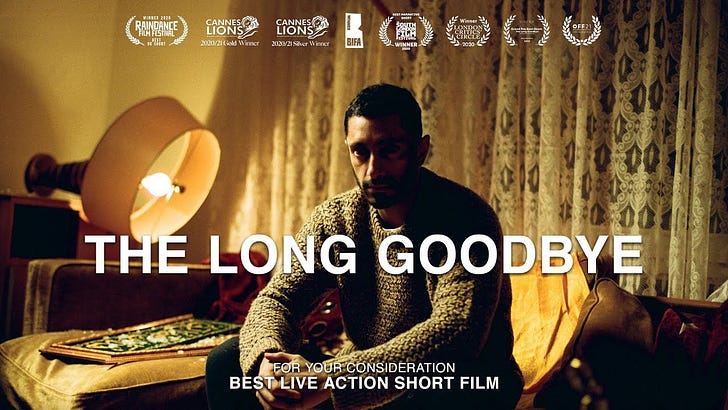Who & What?
Did you know that only a fraction of films meet the basic criteria for representing women or minority groups meaningfully? Representation in film is controversial and should be contested, explored, and challenged as we strive to depict the world that we live in.


Two interesting tests challenge and explore stereotypes and the role that they play in film narratives and are great for getting students curious about representation. The Bechdel-Wallace Test, created by American cartoonist and novelist Alison Bechdel, assesses a film's representation of women by asking if it features at least two women who talk to each other about something other than a man. The Riz Test, named after British actor Rizwan Ahmed, evaluates a film's portrayal of Muslim characters, focusing on whether they are depicted in stereotypical or negative roles related to terrorism, oppression, or anti-Western sentiment. The Riz Test was created by Dr. Sadia Habib (Lecturer in Education at Manchester Institute of Education) and Shaf Choudry.
The Bechdel Test first appeared in Alison’s comic strip Dykes to Watch Out For and the Riz Test was inspired by Rizwan Ahmed’s advocacy for better and more diverse representation in the media.
The Bechdel Test
The Bechdel Test looks at women in film. It is a measure of the representation of women in fiction. It asks whether a work features at least two women who talk to each other about something other than a man. For too long, women have been second to men in film, they are there to drive the main character (a man) forward in his narrative arc, and often they end up either as his prize or dead by the end of the film.
The Bechdel Test presents three questions to be asked about the story:
Are there at least two named female characters?
Do they speak to each other?
Do they speak to each other about something other than a male "love" interest?
If the answer to any of the above is YES, then the Film/ TV Show passes the test.
The Riz Test
The Riz Test looks at how Muslims are portrayed in film. Collective authorship of who and what Muslims represent in film narratives is extraordinarily limited and marginalizes a global community.
The Riz Test asks the following questions, is the character:
Talking about, the victim of, or the perpetrator of terrorism?
Presented as irrationally angry?
Presented as superstitious, culturally backward, or anti-modern?
Presented as a threat to a Western way of life?
If the character is male, is he presented as misogynistic? or if female, is she presented as oppressed by her male
counterparts?
If the answer to any of the above is YES, then the Film/ TV Show fails the test.
Create a Test of Your Own
An exercise to take into the classroom.
Identify a Stereotype - Choose a stereotype that you find problematic or underrepresented in media. Focus on characteristics like gender, race, age, politics, religion, or any other aspect that matters to you.
Set Clear Criteria - Develop specific, measurable questions similar to the Bechdel and Riz Tests. These should evaluate if the media perpetuates or challenges the chosen stereotype.
Clarify the Importance - Explain why it's crucial to challenge this stereotype. Reflect on its societal impacts and how changing representation can make a difference.
Share Your Test - Share this idea in your school community or go further with social media. Invite feedback and discussion to refine it further.
Discuss Potential Impact - Consider how applying your test could influence media production and contribute to more diverse and accurate portrayals.
A short film to recommend
Viewer discretion advised
The Long Goodbye (2020), directed by Aneil Karia, screenplay, music and acting by Riz Ahmed. 12 minutes.
This film is powerful. It won the Oscars in 2022 for Best Live Action Short.
The film portrays a South Asian family in suburban London, whose celebration preparations are disrupted by news reports of an all-white militia, leading to a devastating encounter when the group arrives at their door.
This is for everyone who feels like they don’t belong. Anyone who feels like they’re stuck in no man’s land. You’re not alone. We’ll meet you there. That’s where the future is. Peace. (Ahmed as he accepted the Oscar)






The Long Goodbye was a devastatingly great short. Very powerful.
Love the idea of creating your own test. A great way to engage with the issue and foster discussion.